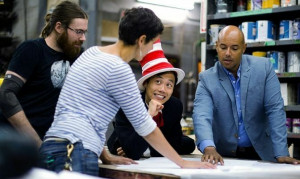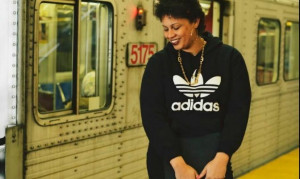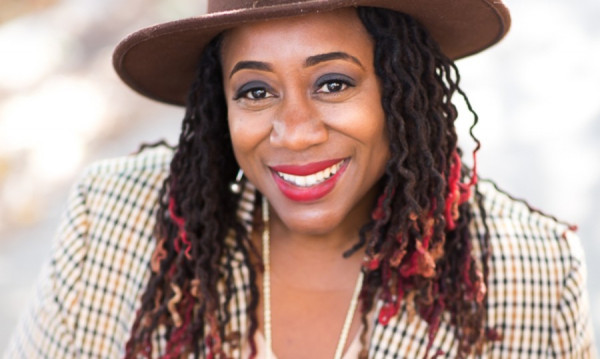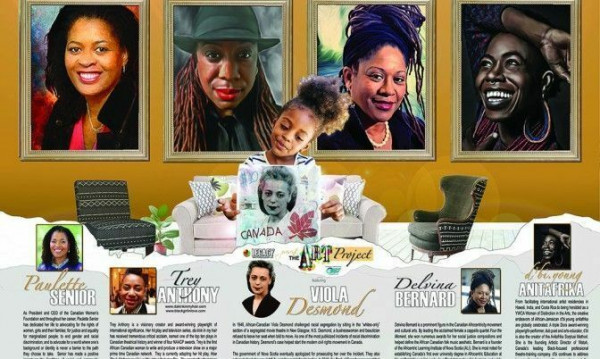Last year she debuted her latest work How Black Mothers Say I Love You, and now she's remounting the heart-wrenching play for those who missed out. And by the way - she's just landed a movie deal. Anthony and Carys Lewis received a grant from Bell Media's Harold Greenberg Fund to make the play into a film, and the script is now in development. At the helm is none other than famed Canadian director Clement Virgo, who directed the Book of Negroes.
At the heart of How Black Mothers Say I Love You is the leading actress Ordena Stephens-Thompson. She plays the mother that many West Indian women grew up with. One who left you at home in the Caribbean in search of a better life abroad. It is these mother-daughter tensions that the play examines. Trey Anthony based the story on her own experience with her mother as well as her own grandmother. It's no surprise then, why Ordena was drawn to the script. Apart from having a long-standing working relationship with Trey Anthony, this one is personal for her too.
1. Can you tell us about your own relationship with your mother? Did you have a similar experience being left behind?
My mother's decision to move to Canada was an indirect one. She had come to Canada to visit some close friends who had already made the move and her intention was to go to the United States to join her mother and sister. But she fell in love with Canada and the rest is herstory.
I don't have a solid memory of the day my mother left, but I do have a very vivid memory of when I travelled to meet her. First of all my plane got into an accident with another aircraft as it was taxiing down the runway to take off. By this time my aunt and uncle had left the airport after seeing me on way. I was travelling by myself had to spend the night in a hotel with a stewardess and another little girl who was also traveling on her own. I was eight years old. The next day I was reunited with my mother.
I was left up to my own devices when I was living with my aunt and uncle. There were no other kids around. I had a cousin but he was a lot older. I felt lonely a lot of the time and there was an incident where I was ill-treated by the housekeeper. I also didn't get to see my father that much because of the distance and his work.
I think being separated from my mother and being given a level of independence as a young child in Jamaica and when I got to Canada, eradicated the closeness that we probably would have had if we not been separated for those formative years. I was very responsible for taking care of myself.
2. What about your own relationship with your children? What have you learned about the mother-daughter dynamic that you bring to your role?
I have two daughters who I am completely in love with and I enjoy them so much that I couldn't fathom leaving them for an extended period of time.
What I bring to this role from my own relationship with my daughters would be the absolute devotion and sacrifices that I have made for them in regards to making sure that they have whatever they need. And sometimes putting my needs and wants on hold or just simplifying mine.
3. What really attracted you to take this role?
Of course I could relate to the story given its relevance to me. But the abundance of women who have the same or very similar stories and have a profound reaction to seeing themselves represented so honestly regardless of culture and demographic. This spoke to me as something that I wanted to be a part of.
4. What challenges did you have in creating this character and lifting it off the script?
My challenges were tapping into the pain of Daphne and how she manages this especially when confronted by her own daughter's pain surrounding being left behind. As a mother, I could not leave my children for nearly that length of time.
5. What's it been like working with Trey Anthony as a friend and director all these years?
An absolute pleasure. One, I admire trey tremendously for her bravery in how she chose to write from a personal place and share it with the world. And two, I enjoy her friendship and her support of me as an actor. And three, she genuinely makes me laugh till my stomach hurts. She is my sister from another mother.
How Black Mothers Say I Love You runs until March 5th 2017 at The Factory Theatre in Toronto.
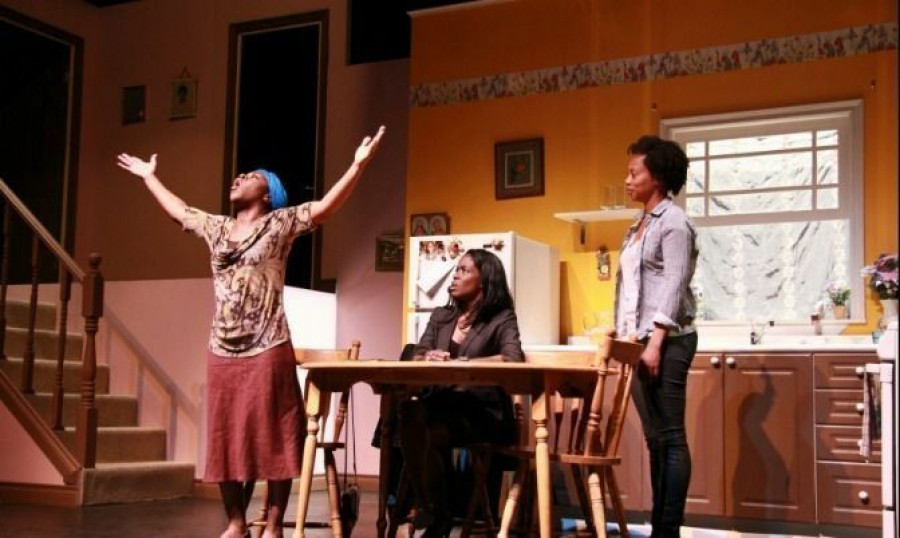
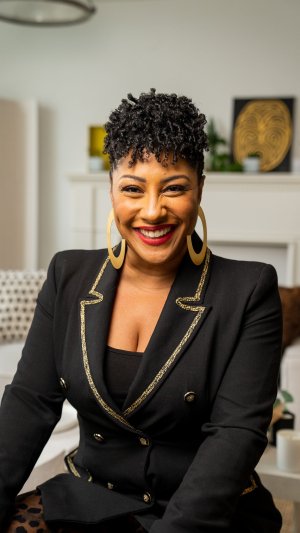 By
By 




